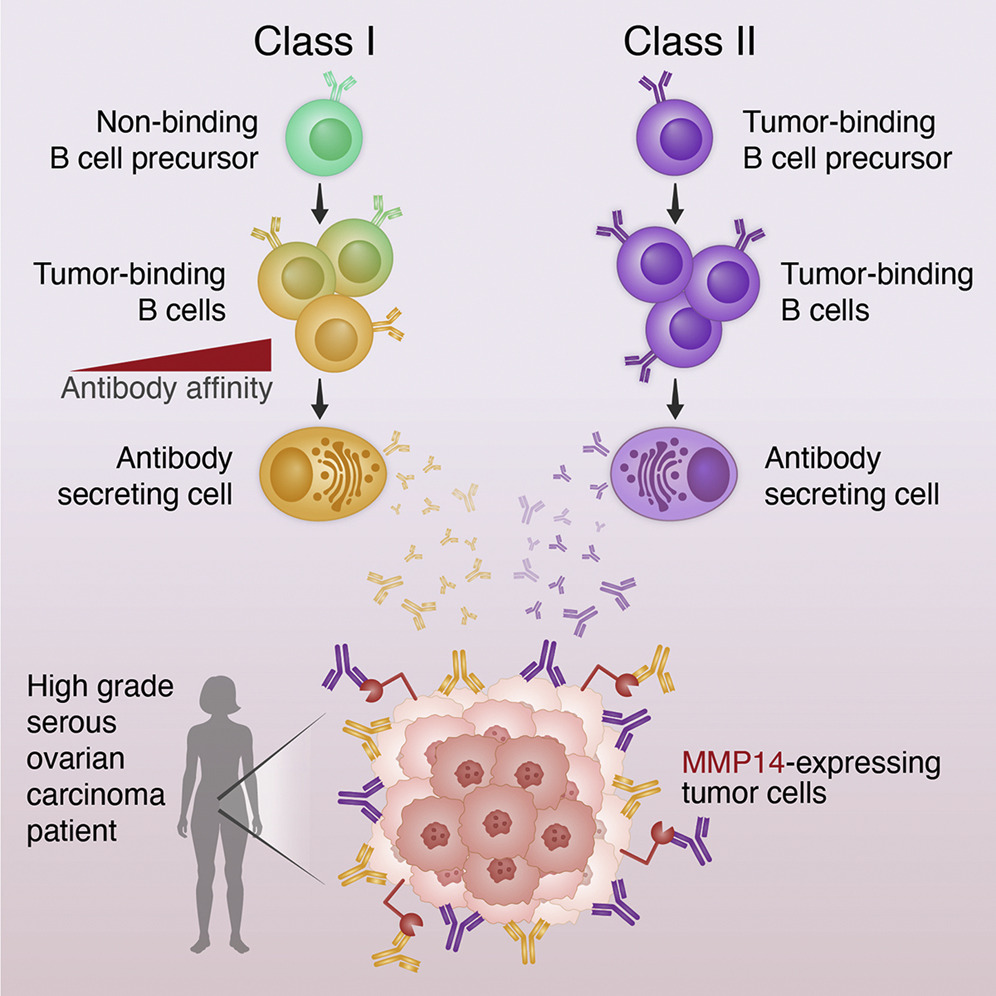Even through relying on the immune system of patients, cancer immunotherapy is still far from fully utilizing the entire body’s natural defense system. In fact, most of these treatments only utilize the ability of T cells to fight tumors. In a new study, researchers paved the way for the development of immunotherapy using a different, novel, and naturally occurring antibody. The results are published in Cell titled “Tumor-reactive antibodies evolve from non-binding and autoreactive precursors”.
Professor Ziv Shulman, co-author of the paper, said they have now confirmed that the immune system of cancer patients can produce antibodies against tumors. Professor Irit Sagi, another co-author, added that these natural antibodies seem to have more therapeutic potentials that were undiscovered. More research is needed to apply them as therapeutic approaches or diagnostic reagents.
Naturally occurring antibodies have been commonly found in tumors, but their role is unknown. Circumstantial evidence has suggested that they do offer some anti-tumor benefits: patients who live longer than others and are more responsive to anticancer drugs were found to have higher concentrations of antibody-producing B cells in tumor areas.
After nearly six years of research, Dr. Mazor and other scientists have confirmed that natural antibodies in tumor tissues target and bind precisely to tumor molecules. The authors then sequenced the genome of B cells in the tumor and identified different gene fragments encoding antibodies that bind to tumor molecules.
Importantly, a new antibody-targeted molecule from thousands of proteins in cancer cells was identified, which is an enzyme called MMP14 (MT1-MMP), a membrane-binding protease. In healthy individuals, this enzyme plays an important role in reshaping tissue, like tissue regeneration or wound healing. While in cancer patients, it disturbs the tumor microenvironment and loses control, cutting the matrix around cancer cells, facilitating cancer cells to invade surrounding tissues and spread elsewhere, leading to cancer cell metastasis. Researchers discovered abnormally high levels of MMP14 in the ovarian tumors.
When attacking this enzyme, some antibodies have evolved, accumulated some mutations, and improved their adaptability to tumors. Professor Shulman said they didn’t expect to see such evolution around cancer. These changes are usually known to occur in infectious diseases in which antibodies gradually acquire mutations to help them better eliminate pathogens. But cancer is part of the patient’s own tissue, or the so-called “self” in the immune system.
The fact that antibodies target an enzyme in the body itself is surprising. Attacks by the immune system on the body’s own tissue are usually harmful, leading to autoimmune diseases. In cancer, however, this process is clearly beneficial. Equally puzzling is why this beneficial process failed to kill the tumor.
Professor Sagi suggested that one potential cause could be the failure of the immune system. The fight against infection may take only a week, while cancer can take months or even years to develop, and ways to evade the patient’s immunity need to be found in the process. After trying to fight cancer for such a long time, the immune system may be too tired to exhaustively kill tumors. Professor Shulman added that the antibodies attacked the tumor cells in the patient’s body, but the cells that could eradicate the tumor were missing. In fact, the authors found that there were very few natural killer cells in tissue samples taken from patients with ovarian tumors. But when they added natural killer cells and anti-tumor antibodies to the tissue culture, natural killer cells performed well in destroying tumors.
These findings brought about a brand new approach to facilitating the development of cancer immunotherapy, that is, the use of natural anti-tumor antibodies. So far, antibodies used to treat cancer have been synthesized on demand for known targets, rather than naturally produced by the patient’s immune system. This new method may help to find previously unknown targets on the surface of tumor cells, thus more effectively guiding the development of immunotherapy. Natural antibodies may also be developed as drugs that can be used alone or in combination with other treatments, and they have been proven to be helpful in early diagnosis of cancer.

